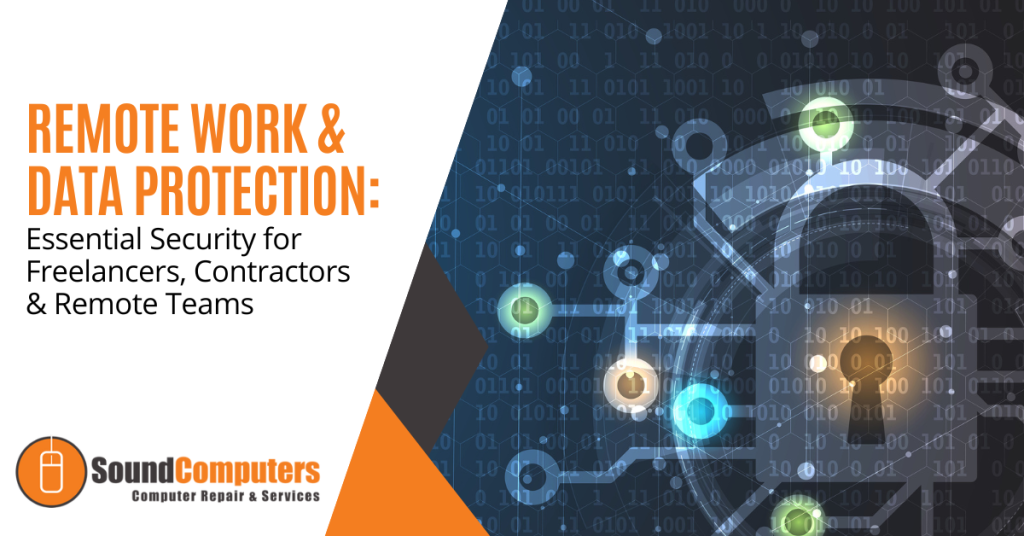
The rise of remote work has transformed the way businesses operate and offers flexibility and efficiency like never before. However, along with the numerous benefits of freelancers and remote workers come significant challenges concerning data protection and cybersecurity.
As freelancers, contractors and remote teams increasingly handle sensitive information outside traditional office settings, ensuring robust security measures becomes paramount. In this comprehensive guide, we delve into the importance of data protection for remote workers and provide actionable strategies to safeguard valuable assets.
Understanding the Remote Work Landscape
The Evolution of Remote Work
Remote work has undergone a remarkable evolution that was propelled by advancements in technology and changing workplace dynamics. What was once considered a perk has now become a necessity for many industries and is driven by factors such as globalization, digitalization and the need for work-life balance. As a result, individuals and organizations alike have embraced remote work as a viable alternative to traditional office environments.
The Benefits and Challenges
Remote work offers numerous benefits including increased productivity, cost savings and access to a global talent pool. However, it also presents unique challenges in terms of cybersecurity and data protection. Without the proper security measures in place, remote workers are vulnerable to various threats including data breaches, malware attacks and unauthorized access to sensitive information.
Importance of Data Protection for Remote Workers
Risks and Threats
Remote workers and freelancers face a myriad of risks when it comes to data protection. From unsecured Wi-Fi networks to phishing scams and device theft, the potential threats are diverse and ever-present. Without adequate protection, sensitive data such as financial information, client details and proprietary documents are at risk of being compromised and that leads to severe consequences for both individuals and organizations.
Legal and Regulatory Compliance
In addition to the ethical imperative of protecting sensitive data, remote workers and freelancers must also comply with various legal and regulatory requirements. Depending on the nature of their work and the jurisdictions involved, individuals and organizations may be subject to data protection laws such as the General Data Protection Regulation (GDPR) in the European Union or the Health Insurance Portability and Accountability Act (HIPAA) in the United States. Failure to comply with these regulations can result in hefty fines and reputational damage.
Strategies for Ensuring Data Protection
Secure Remote Access
One of the fundamental aspects of data protection for remote workers is ensuring secure access to company networks and systems. This involves implementing robust authentication mechanisms such as multi-factor authentication (MFA) and virtual private networks (VPNs) to encrypt data transmitted over public networks. Additionally, regular software updates and patches should be applied to mitigate vulnerabilities and reduce the risk of exploitation by cybercriminals.
Endpoint Security
Endpoint devices such as laptops, smartphones and tablets are often the primary targets for cyber attacks which makes endpoint security a critical component of data protection. Remote workers should use reputable antivirus software and firewall protection to detect and prevent malware infections. Furthermore, device encryption and remote wiping capabilities can help safeguard data in the event of loss or theft.
Data Encryption and Backup
Encrypting sensitive data both in transit and at rest adds an extra layer of security and makes it unreadable to unauthorized users. Remote workers should utilize encryption protocols such as SSL/TLS for secure communication and implement encryption tools for storing sensitive files locally and in the cloud. Additionally, regular data backups are essential to mitigate the risk of data loss due to accidental deletion, hardware failure or ransomware attacks.
Security Awareness Training
Human error remains one of the leading causes of data breaches and highlights the importance of security awareness training for remote workers and freelancers. Training programs should cover topics such as recognizing phishing attempts, creating strong passwords and securely handling sensitive information. By empowering workers with the knowledge and skills to identify and respond to security threats, organizations can significantly reduce their risk exposure.
Prioritize Remote Work Data Protection
As remote work continues to gain momentum, prioritizing data protection is no longer optional. It is essential for the long-term success and sustainability of remote workers, freelancers and organizations alike. By understanding the unique risks and challenges associated with remote work and implementing proactive security measures, individuals and teams can safeguard valuable assets and maintain trust with clients and stakeholders.
Ensuring data protection is an ongoing process that requires diligence and vigilance. By partnering with a trusted IT provider like Sound Computers, you can gain access to expert guidance and cutting-edge solutions tailored to your specific needs.
Don’t wait until it’s too late. Prioritize data protection today and contact us to learn how we can help secure your remote work environment.
